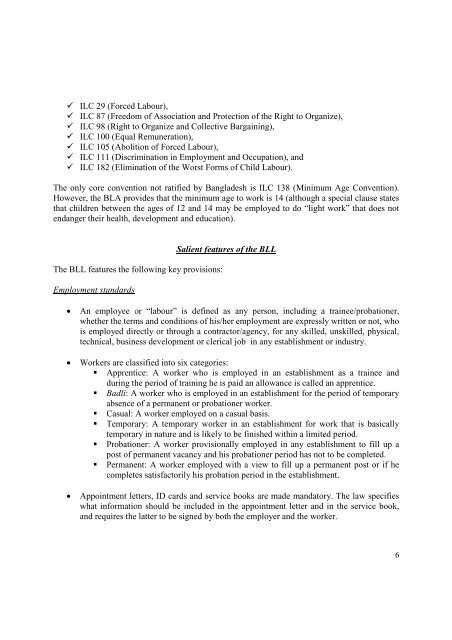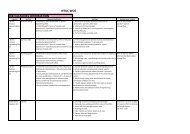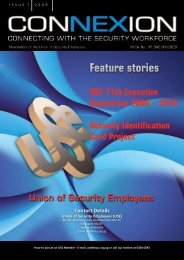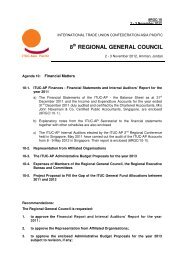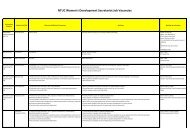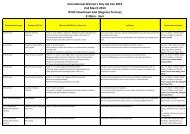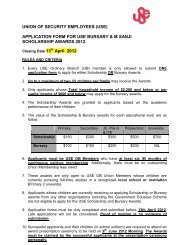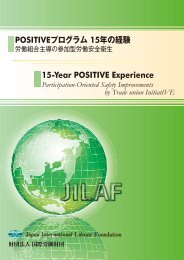BANGLADESH LABOUR LAW: - People Tree Foundation
BANGLADESH LABOUR LAW: - People Tree Foundation
BANGLADESH LABOUR LAW: - People Tree Foundation
You also want an ePaper? Increase the reach of your titles
YUMPU automatically turns print PDFs into web optimized ePapers that Google loves.
ILC 29 (Forced Labour),<br />
ILC 87 (Freedom of Association and Protection of the Right to Organize),<br />
ILC 98 (Right to Organize and Collective Bargaining),<br />
ILC 100 (Equal Remuneration),<br />
ILC 105 (Abolition of Forced Labour),<br />
ILC 111 (Discrimination in Employment and Occupation), and<br />
ILC 182 (Elimination of the Worst Forms of Child Labour).<br />
The only core convention not ratified by Bangladesh is ILC 138 (Minimum Age Convention).<br />
However, the BLA provides that the minimum age to work is 14 (although a special clause states<br />
that children between the ages of 12 and 14 may be employed to do “light work” that does not<br />
endanger their health, development and education).<br />
The BLL features the following key provisions:<br />
Employment standards<br />
Salient features of the BLL<br />
<br />
<br />
<br />
An employee or “labour” is defined as any person, including a trainee/probationer,<br />
whether the terms and conditions of his/her employment are expressly written or not, who<br />
is employed directly or through a contractor/agency, for any skilled, unskilled, physical,<br />
technical, business development or clerical job in any establishment or industry.<br />
Workers are classified into six categories:<br />
• Apprentice: A worker who is employed in an establishment as a trainee and<br />
during the period of training he is paid an allowance is called an apprentice.<br />
• Badli: A worker who is employed in an establishment for the period of temporary<br />
absence of a permanent or probationer worker.<br />
• Casual: A worker employed on a casual basis.<br />
• Temporary: A temporary worker in an establishment for work that is basically<br />
temporary in nature and is likely to be finished within a limited period.<br />
• Probationer: A worker provisionally employed in any establishment to fill up a<br />
post of permanent vacancy and his probationer period has not to be completed.<br />
• Permanent: A worker employed with a view to fill up a permanent post or if he<br />
completes satisfactorily his probation period in the establishment.<br />
Appointment letters, ID cards and service books are made mandatory. The law specifies<br />
what information should be included in the appointment letter and in the service book,<br />
and requires the latter to be signed by both the employer and the worker.<br />
6


